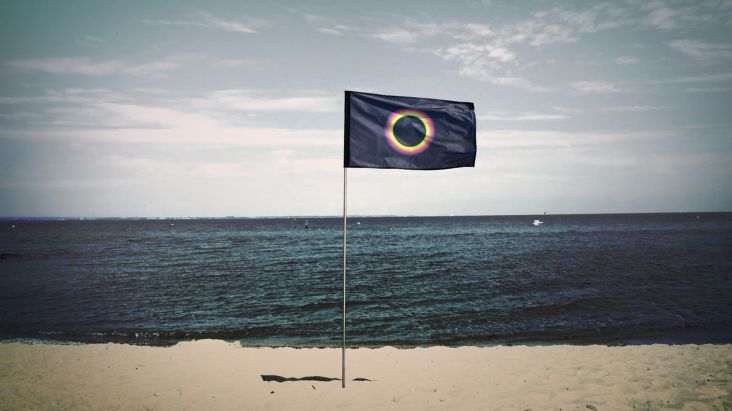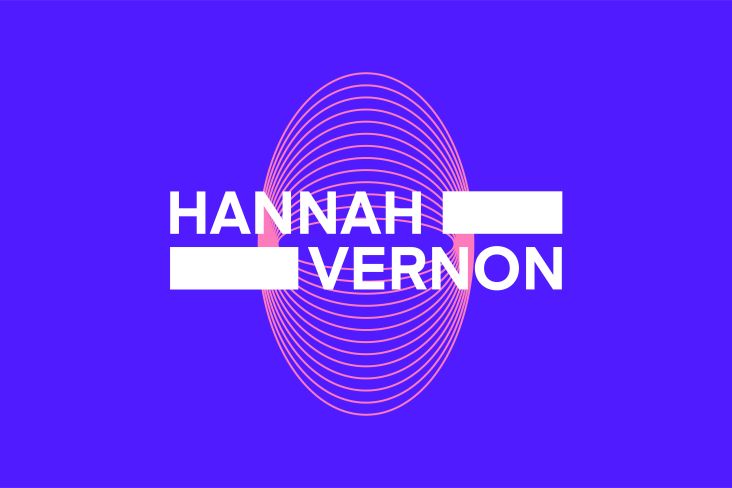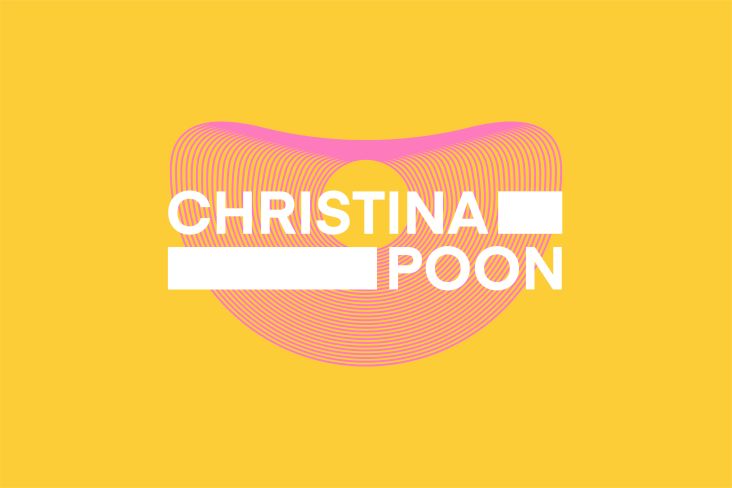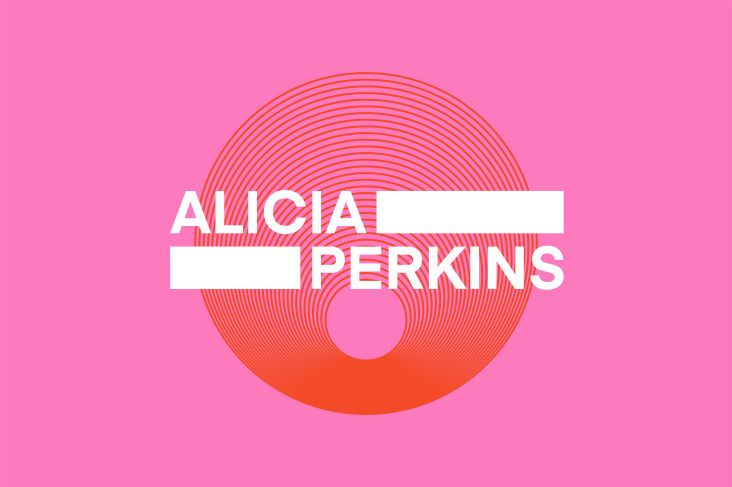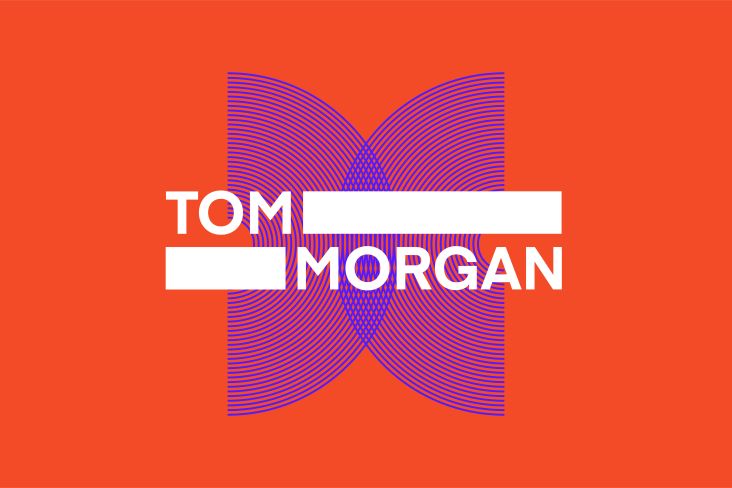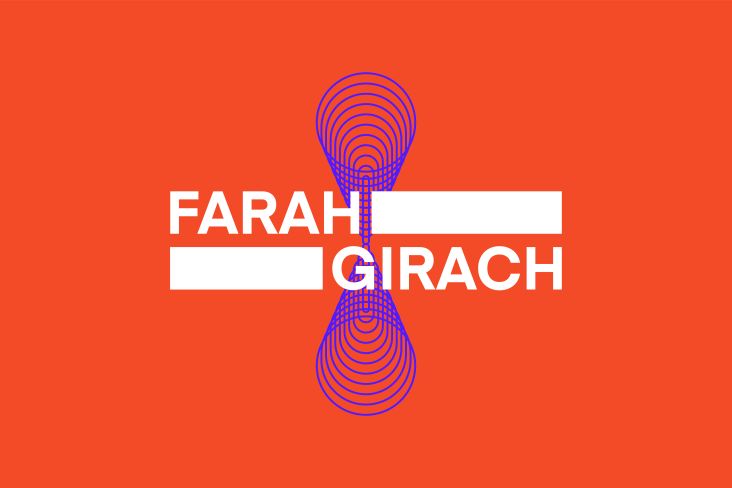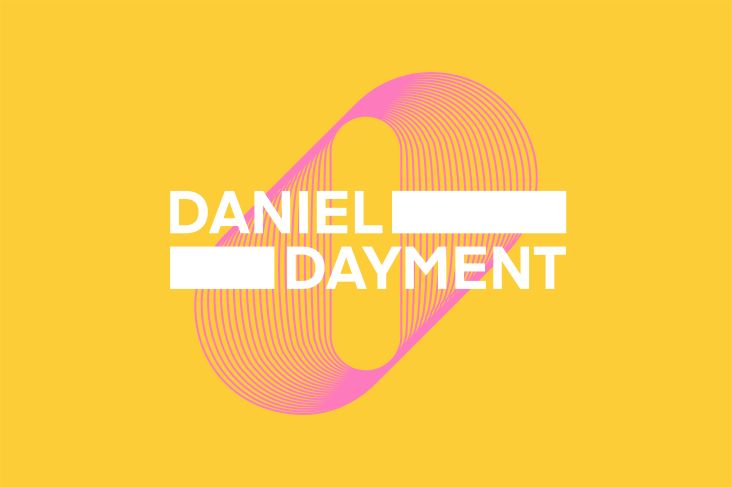Introducing: Tintin Lindkvist Nielsen on escapism, being kind to yourself, and why sensitivity is no bad thing
As part of our series focusing on new creative graduates, we celebrate Tintin Lindkvist Nielsen from Glasgow School of Art. Here she chats to us about staying sane in lockdown, what inspires her, and the thinking behind her children's book, Lollipop Tuesday.
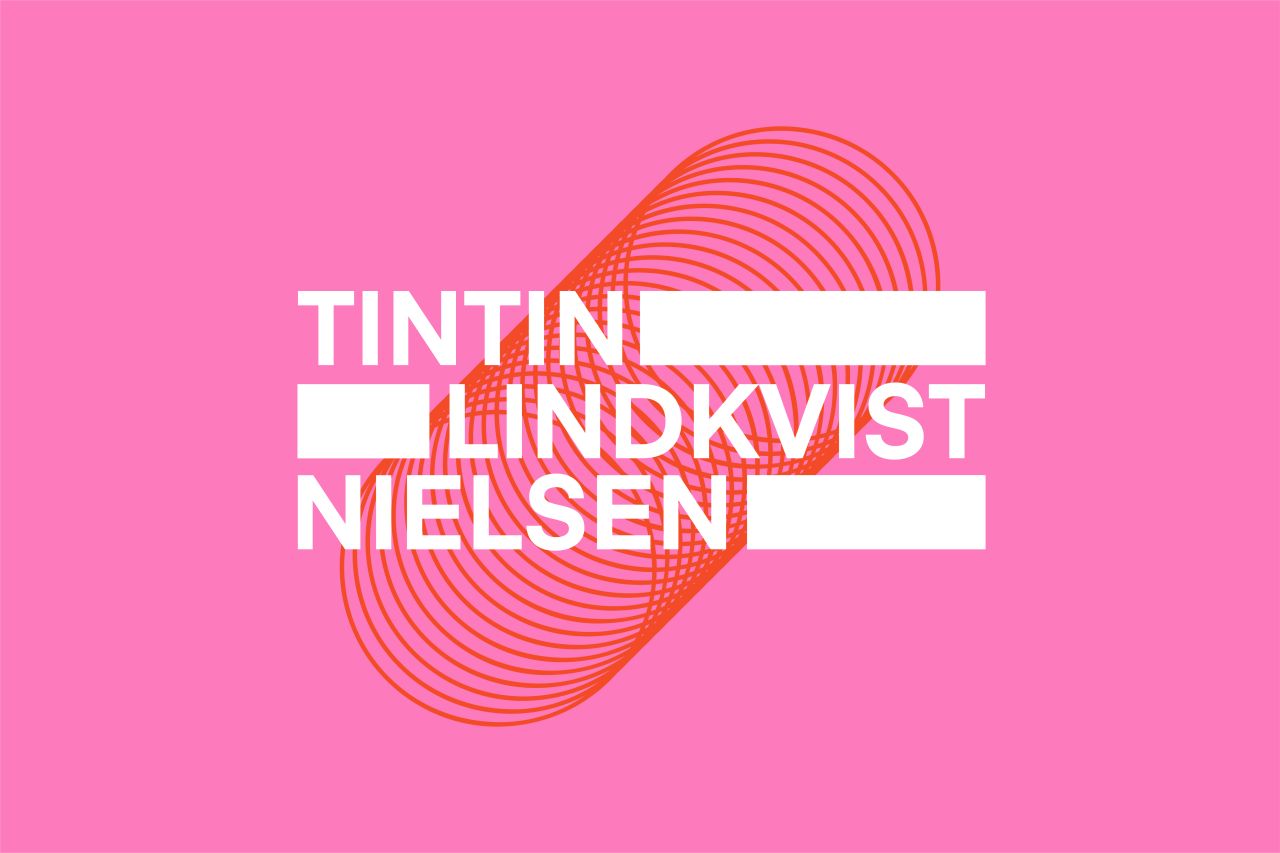
Hailing from Sweden, Tintin Lindkvist Nielsen is an illustrator and animator who recently graduated in Communication Design from The Glasgow School of Art.
Working across disciplines in visual communication and storytelling, she spends her time creating short animations, bright gouache paintings, inky and loose drawings in blue, and sets and props for stop motion films.
"With colours and characters, I like to create worlds that look like ours whilst also being different," she explains. "A lot of my work is connected to feelings." Here we chat to Tintin about dealing with overwhelming thoughts, moving to the UK, and developing a children's book for her final-year project.
Where did you grow up?
I grew up in a small town in southern Sweden called Karlskrona. It's an idyllic summer place, surrounded by the blue ocean and boats. I was, and still am, very sensitive, and I remember struggling with feelings of being too sensitive and overthinking things. At that point, creating would become some sort of escapism. It was a space where anything was possible, something I was good at, and where overwhelming thoughts could be expressed.
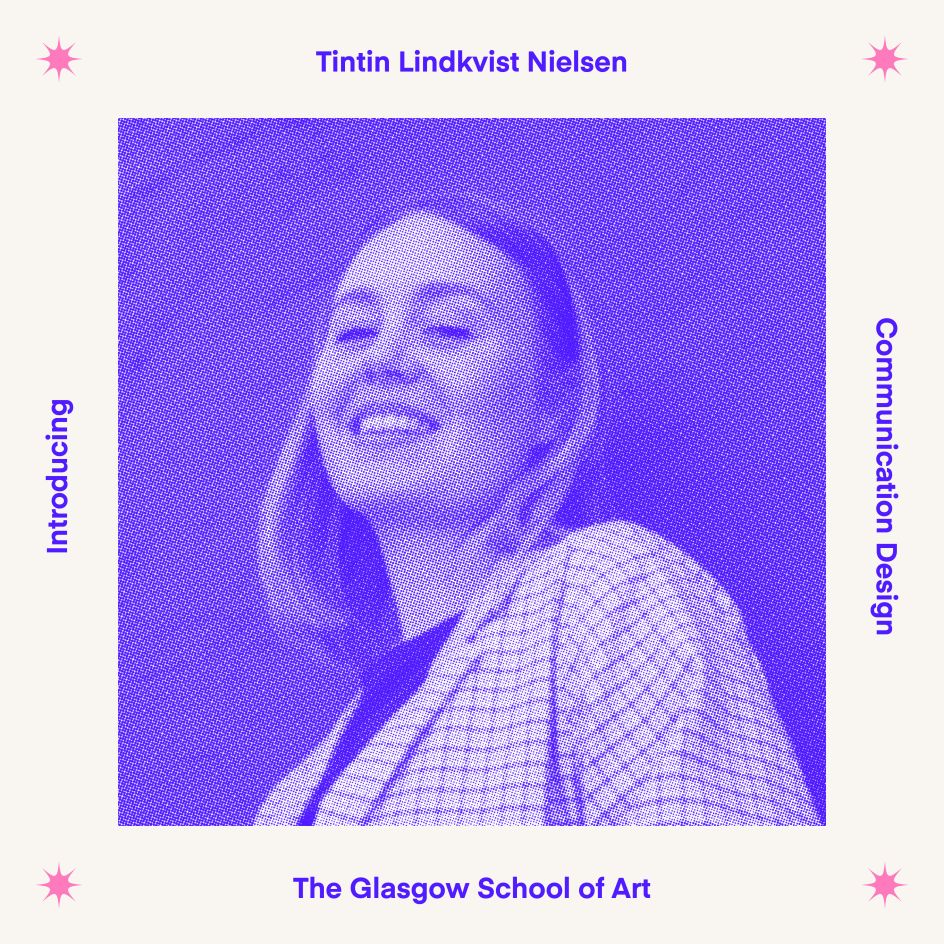
How did you get into art?
I've always been drawn to all creative things. I have loved art for as long as I can remember. My parents don't work in the creative industry, but they have always told me to follow my passions.
Why did you choose your course and university?
It was one of those things that happened without too much thinking. One thing led to another, and suddenly, I was accepted to Glasgow School of Art's Communication Design course. It was a combination of hearing good things about the school and realising that it had to be before Brexit happened if I wanted a smooth transition to the UK.
I had the mentality of "now or never" when I applied and put all my effort into getting into this school. I had already done a Foundation course in Sweden studying Visual Communication and knew I wanted to continue in the same field.
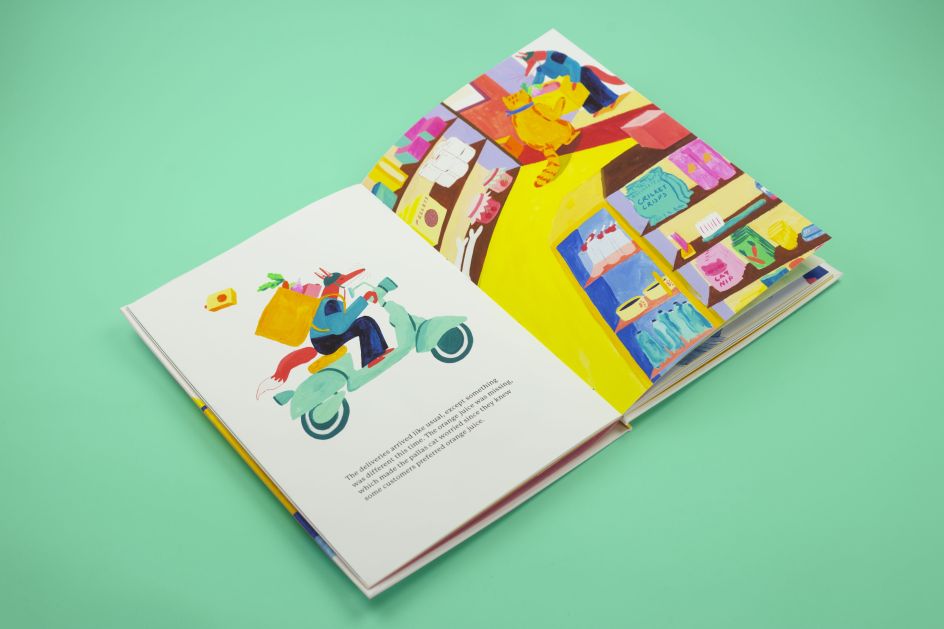
© Tintin Lindkvist Nielsen
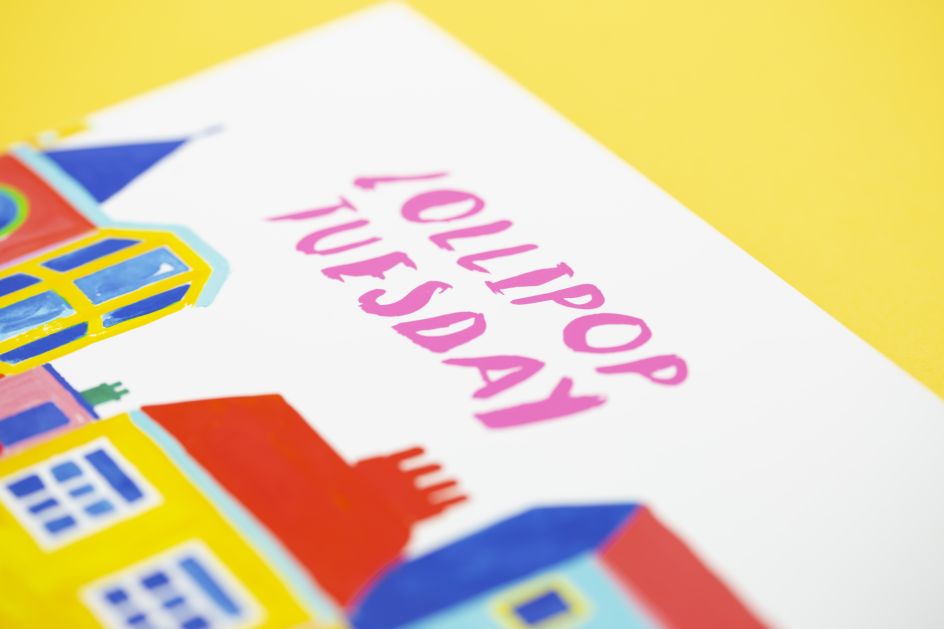
© Tintin Lindkvist Nielsen
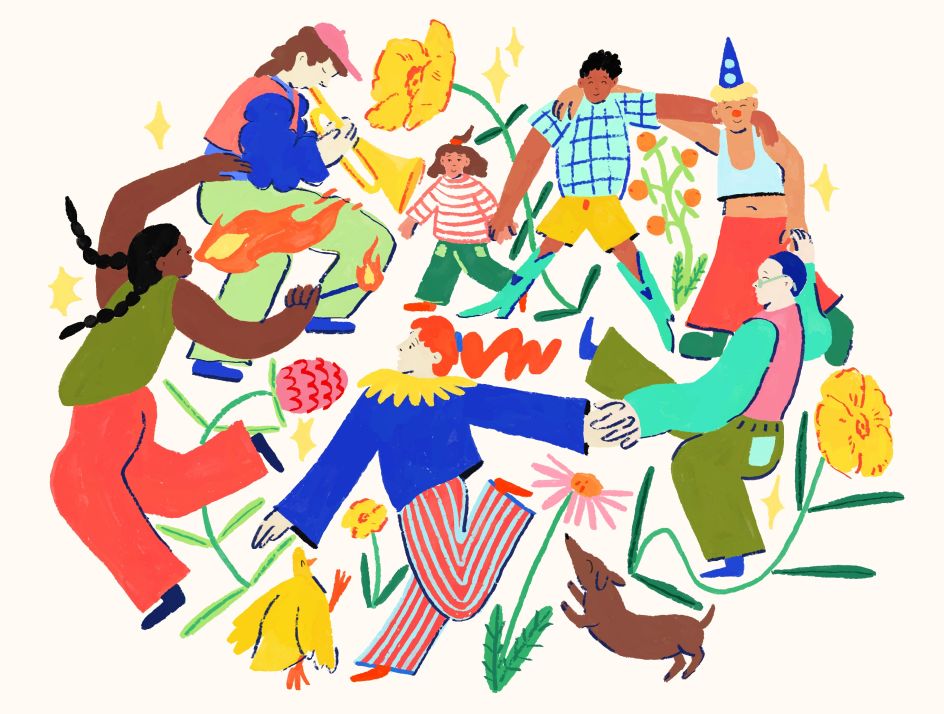
© Tintin Lindkvist Nielsen
What was the experience like?
It's been like a rollercoaster. I'm feeling blessed since myself, and my family are healthy, but also frustrated with the lack of access to the studios for one and a half years. Luckily, I had two fantastic roommates during this period. We kept each other sane and collaborated on art projects together. Working from home also meant my work became more digital, and I developed skills in 2D animation. This time also taught me to not take anything for granted.
Coming back and using the facilities and studios again sparked a fire in me, and I wanted to make the most of that final year. But it was also overwhelming since we had to make up for all the lost time in one year.
What can you tell us about your final-year project?
My final project is a children's book named Lollipop Tuesday, targeting three- to six-year-olds. The main character, a Pallas cat who owns a corner shop, deals with feelings such as not believing you're good enough. The book concludes with the protagonist realising it's okay to ask for help and to remember to be kind to yourself.
Importantly, this character's sensitivity allows them to help so many customers. They notice things others miss, and they're thoughtful and authentic, all of which are positive traits. The word 'sensitive' has a negative connotation in our society. I want to tell children, and their parents, that there are positive aspects to being sensitive as well.
I based the story on my feelings and experiences and an interview with a corner shop owner. I told him about my idea, and he said it was uncanny how he could relate to the topic and thought I must have written the book about him. My illustrations from the book are painted traditionally using gouache. They are scanned, and some line art has been added digitally using Procreate software.
Do not take any rejections personally. It doesn't mean that your work is bad; it can simply mean it wasn't the right fit for that specific job – but it will be a perfect match for something else.
Can you describe your style in your own words?
I think my style is constantly changing and evolving. I like to try new things, but what's constant is my use of bright colours and linework.
Who or what inspires you?
I get inspired by watching people, nature, houses, and events around me. I usually draw people that I see and makeup narratives inspired by some clues that can maybe tell me who they are. For example, what are they wearing? Do they seem relaxed, or are they in a rush? Where are they going?
What do you hope to do with your career?
I hope my career involves projects where I'm forced to be challenged and work with many different creative approaches. For example, painting giant murals, doing a commercial stop motion video for a brand, or illustrating for a children's books author. I'd love to continue experimenting and trying new things and create narratives about subjects that feel important and move people.
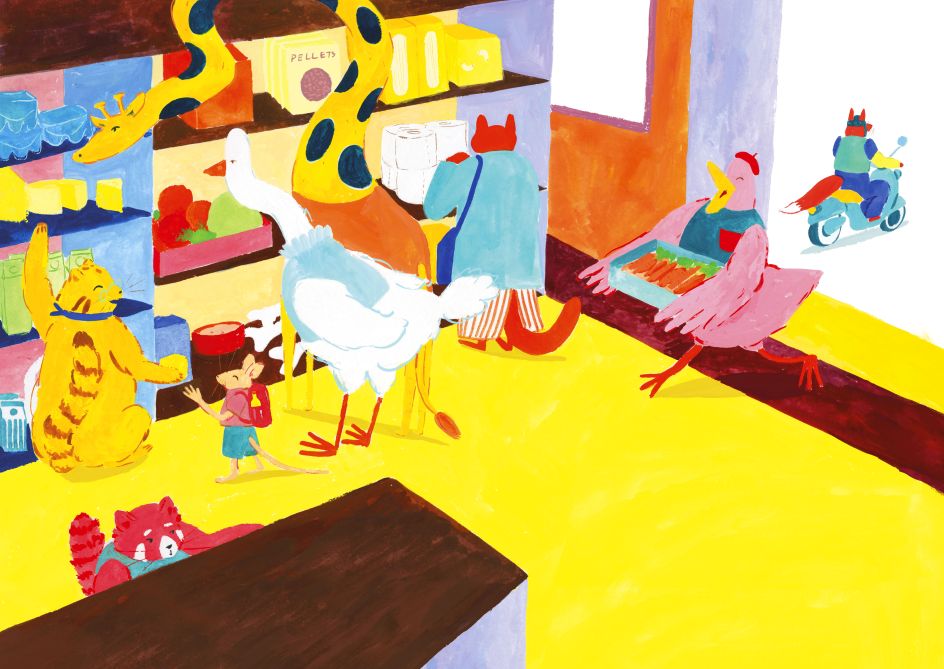
© Tintin Lindkvist Nielsen
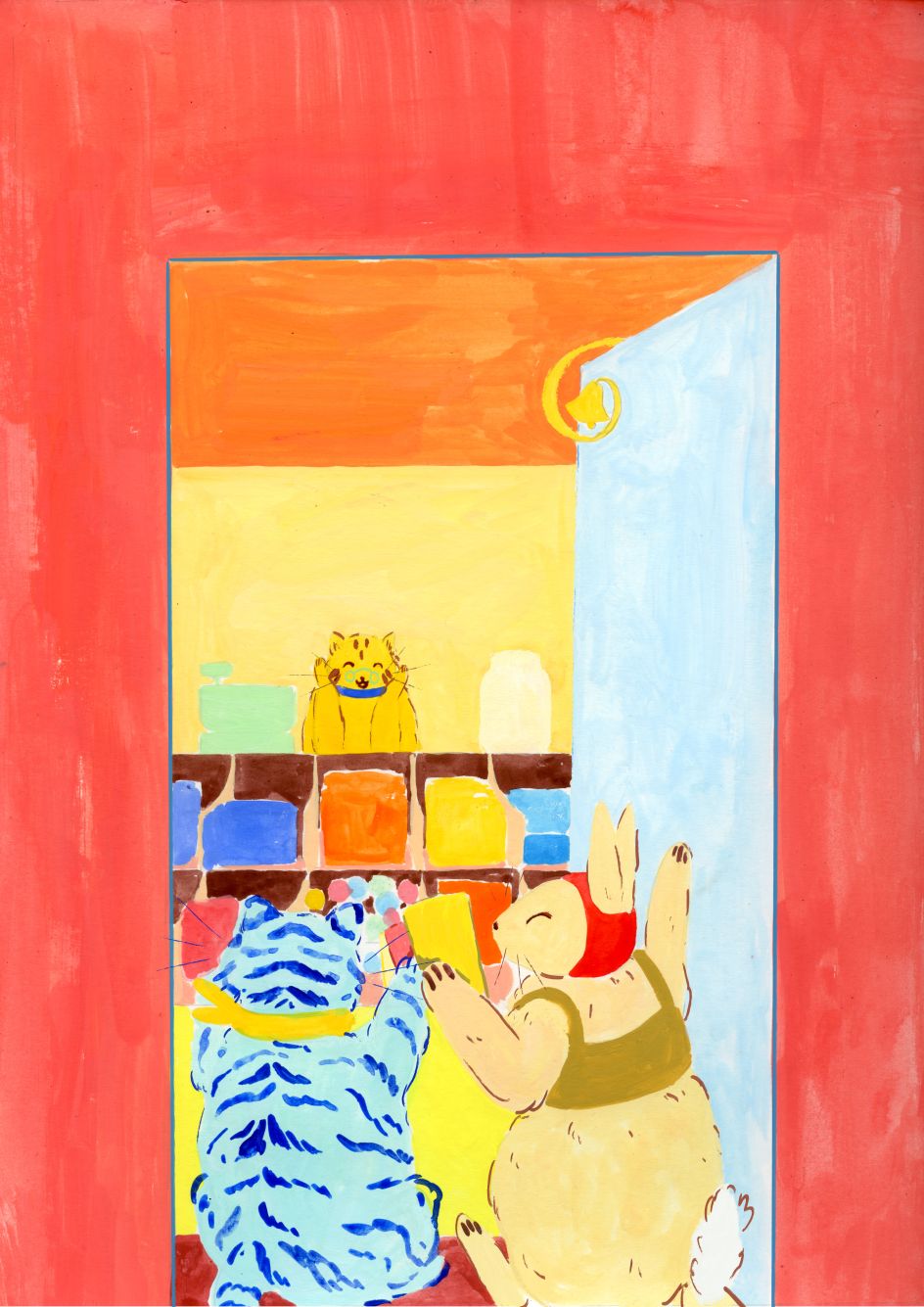
© Tintin Lindkvist Nielsen
How do you feel about graduating in 2022?
It's exciting that things have returned to normal this year. Graduating this year meant we could have a physical degree show. It's been a long wait, and I hope that people are now ready and excited to make new connections and collaborations.
It's scary to be thrown out into the world after four years at university, not knowing what is coming next. I hope I'll be able to continue doing what I love. I'd also like to work towards getting my children's book published.
What advice would you give to others following in your footsteps?
It's okay to get no's when applying for jobs or entering competitions. There'll probably be many of those, but I think it's important to remember you only need one 'yes'. It's also important to not take any rejections personally. It doesn't mean that your work is bad; it can simply mean it wasn't the right fit for that specific job – but it will be a perfect match for something else.
© Tintin Lindkvist Nielsen

















